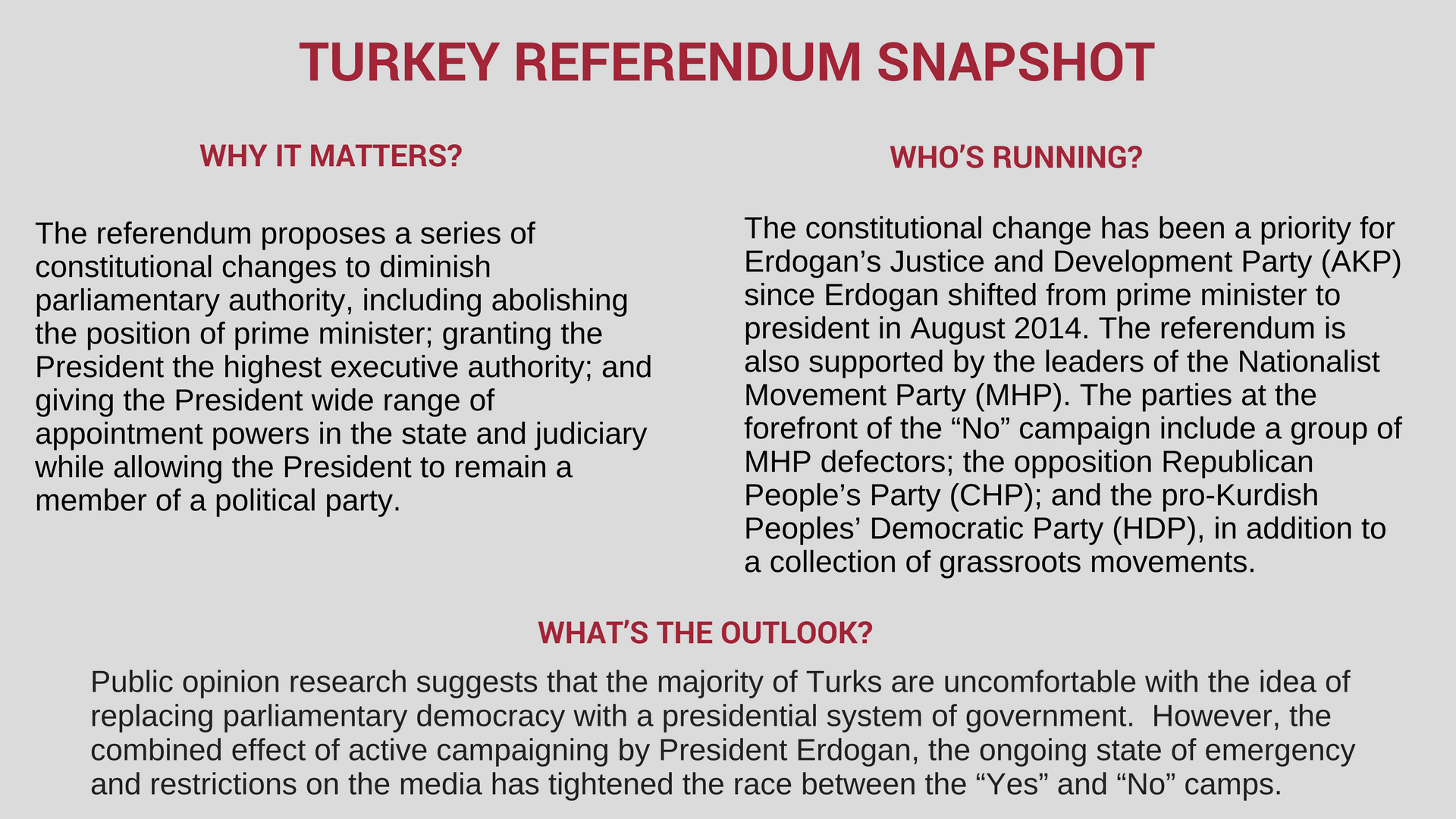On April 16, Turkish citizens in Turkey and expatriates will go to the polls to vote on a constitutional amendment package that would expand the powers of the presidency. The government-backed proposal follows a steady stream of measures by President Recep Tayyip Erdogan to centralize power.

Current Context
In recent years, Turkey has experienced a rise in security threats and escalating political tensions. The country has been in a state of emergency since the attempted coup d’état in July 2016, and has grappled with regional challenges including the rise of the Islamic State in neighboring Syria, as well as an economic downturn. Supporters of the constitutional referendum have argued that the referendum will enable the government to handle challenges more effectively, while critics contend that the measures will benefit only Erdogan and a small circle of political allies.
Outlook
The “No” campaign has suffered from a lack of coordination and a dearth of access to media outlets as a result of the decline of independent media. Opposition forces have relied on a combination of street protests and social media to get their message across to voters. In contrast, the AKP has led a well-organized campaign that has dominated media and advertising coverage. The contest is expected to be close, and political polarization is likely to continue regardless of the outcome.
Top